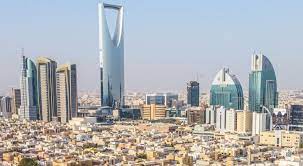RIYADH (AFP): Top business executives are headed to Saudi Arabia for a major investor forum from Tuesday as the Israel-Hamas war casts a dark shadow and fears it could spread across the Middle East.
More than 6,000 delegates are registered for the three-day Future Investment Initiative in Riyadh, the capital of the oil-rich kingdom.
The seventh edition of FII, often dubbed “Davos in the Desert”, will bring global banking chiefs and the presidents of South Korea, Kenya and Rwanda, organisers say.
Yet the violence that erupted with Hamas’s October 7 attack on Israel has led both Arab and Western leaders to warn of a regional conflagration if it draws in more of Israel’s enemies.
The war broke out when Hamas militants killed at least 1,400 people in Israel, mostly civilians who were shot, stabbed or burnt on the first day of the raid, and took more than 200 hostages, according to Israeli officials.
Israel has hit back with a relentless bombing campaign on Gaza, killing more than 5,000 people, also mainly civilians, according to the Hamas-run health ministry, and cut off supplies of water, electricity, fuel and food.
The shocking violence stands in stark contrast to the vision of a more stable and prosperous region advocated by Saudi Arabia, which this year rebuilt ties with Iran and was in talks towards recognising Israel.
“You can’t ignore what is going on because it will impact the economy of the whole region — not just in Saudi Arabia,” said Naser al-Tamimi, Middle East analyst at the Italian Institute for International Political Studies.
He added, though, that most investors take a longer view of regional growth prospects and that the Saudis are “determined not to let anything outside affect” reforms initiated as part of Crown Prince Mohammed bin Salman’s Vision 2030 agenda.
As of last Thursday, the event organisers had recorded no more than 20 cancellations because of the war, mostly due to company travel bans, FII Institute CEO Richard Attias told a press conference.
“I expect personally that all sessions will address the impact of what is going on, but not only in the region but also in Ukraine, also in Europe,” he said.
It is important, Attias argued, to grapple with “the impacts of conflicts on business”.
– Saudi vision at risk –
The FII has weathered turmoil before, notably after the 2018 killing of journalist Jamal Khashoggi by Saudi agents, which temporarily left Prince Mohammed shunned by Western powers.
The latest violence convulsing Israel and Gaza comes at the halfway point of Prince Mohammed’s Vision 2030 reform agenda intended to transition Saudi Arabia, the world’s biggest crude oil exporter, away from fossil fuels.
In recent years Saudi officials have stressed the importance of a stable, more integrated region to the success of that project, and beyond Iran they have worked to mend rifts with Qatar, Turkey and Syria.
They have also tried to extricate themselves from further military involvement in neighbouring Yemen, and have hosted talks aimed at resolving the six-month-old war in Sudan.
Riyadh had, as well, been taking part in three-way negotiations with the United States and Israel over the possibility of normalising diplomatic relations between Saudi Arabia and Israel.
The Israel-Hamas conflict threatens these attempts to calm the region, and could spread beyond Gaza.
Israel has warned that Lebanon-based militant group Hezbollah, a Hamas ally, was “dragging Lebanon into a war” amid exchanges of fire along the two countries’ border.
Kristian Ulrichsen, a research fellow at the Baker Institute at Rice University, said that “the Israel-Hamas war cuts at the heart of the regional de-escalation dynamics and strategy of ‘de-risking’ that the Saudi leadership has put a premium on achieving.”
More frightening for Saudi leaders is that the evolution of the conflict “is largely out of their hands”, said another analyst, Kristin Diwan of the Arab Gulf States Institute in Washington.
“It depends on how far Israel takes things, whether there is displacement of Palestinians into Jordan and Egypt, and if Iran decides to take this into a more regional war.”







